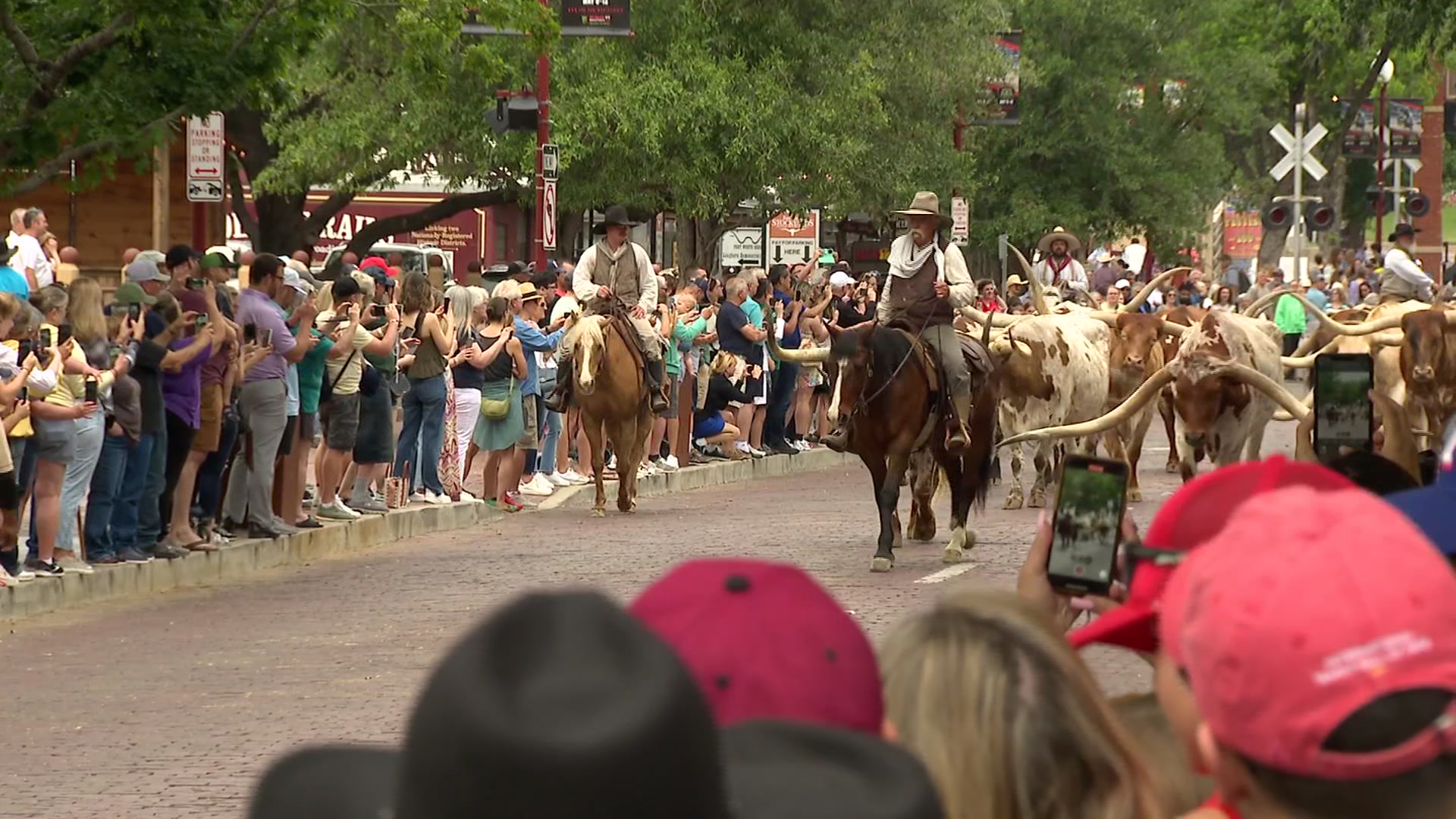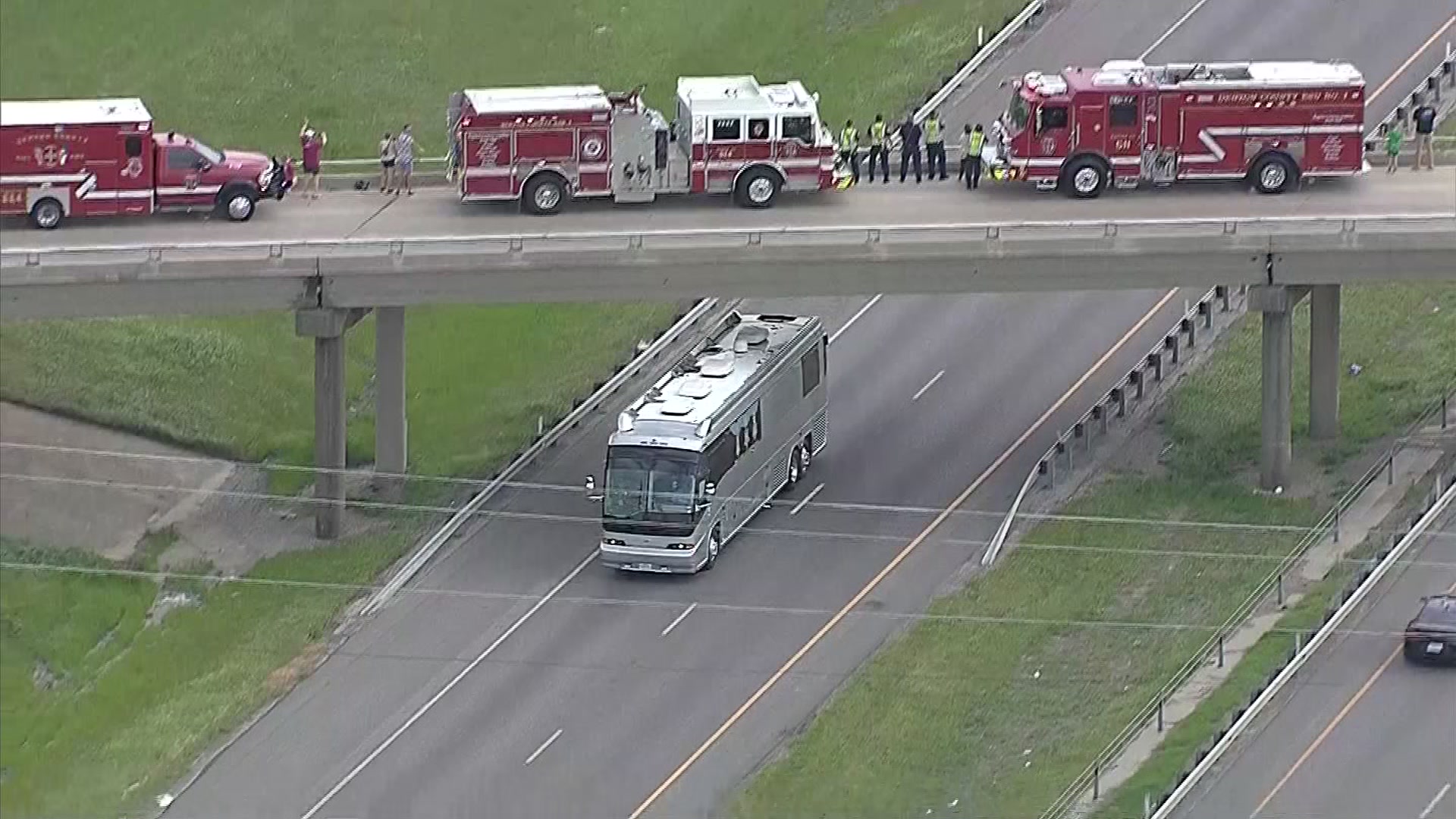A former Army recruiter who maintained his innocence in the rape-slaying of a woman in Fort Worth nine years ago received a reprieve from execution Tuesday evening.
The U.S. Supreme Court stopped Cleve Foster's lethal injection so it can further review an appeal.
The court issued the brief order just before 6 p.m., the start of the six-hour window for Foster's execution, but Justices Antonin Scalia and Sam Alito indicated they would have allowed the punishment to proceed.
Foster, 47, has insisted a friend was responsible for fatally shooting 30-year-old Nyaneur Pal, who had fled Sudan for Texas. The friend, Sheldon Ward, one of Foster's recruits, also was condemned for the slaying. He died of cancer last year while in prison. Foster's lawyers said the evidence did not support his conviction.
Foster spent much of Tuesday afternoon in a small cell just a few steps from the Texas death chamber. At the hour when he could have been taken away for his punishment if court actions were resolved, a chaplain informed him he would live.
"I was and I wasn't," he replied when asked by prison officials if he was surprised. "I gave it to God a long time ago."
He also said he was gratified by support from friends, calling it "really humbling."
Local
The latest news from around North Texas.
Foster's execution would have been the first this year in Texas, the nation's most active death penalty state, where 17 inmates were put to death last year. Foster and Ward also were implicated but never tried in the slaying of another woman in Fort Worth several weeks before Pal was killed.
In an appeal, attorneys for Foster argued to the Supreme Court that his conviction was flawed because trial lawyers failed to arrange for a blood spatter expert to dispute a detective's testimony that Ward couldn't have killed Pal and moved her body to an isolated dump site by himself. Such testimony for him would have presented "at least a reasonable probability that the result of Mr. Foster's trial would have been different," attorney Clint Broden said.
Prosecutors insisted that evidence showed Foster actively participated in the woman's killing, offered no credible explanations and lied and gave contradictory stories about his sexual activities with Pal. His 11th-hour appeal "recycles the stale arguments that state and federal courts have already considered in rejecting Foster's protestations of innocence," Jonathan Mitchell, an assistant Texas Solicitor General, told the court.
Foster declined to speak with reporters as his scheduled punishment neared. He told The Associated Press in a 2004 interview that he viewed the evidence against him as prosecutors "pulling stuff out of their hat."
"I didn't do this," he said of Pal's killing.
Foster and Ward were convicted separately. The Sudanese woman, known as Mary Pal, worked at a country club and was seen talking with the pair at a Fort Worth bar. Her body was found hours later dumped in a ditch off a Tarrant County road. She'd been shot once in the head.
A gun recovered from the motel room where Foster and Ward lived was identified as the weapon used to shoot Pal. It also was identified as the gun used two months earlier to kill Rachel Urnosky, 22, at her Fort Worth apartment.
Pal's blood and tissue was found on the weapon and DNA evidence showed both men had sex with Pal. Ward said the sex was consensual. Foster said he was passed out from sleeping pills at the time Pal would have been murdered.
Ward said Foster was unconscious when Pal had sex with Foster, an assertion repeated by Foster's lawyers in their last-ditch Supreme Court appeal. Prosecutors called it "an audacious theory that defames the victim of this crime while doing nothing to explain Foster's' contradictory statements to the investigators."
Ben Leonard, a former Tarrant County assistant district attorney who prosecuted Foster, said Foster's innocence claims were "baloney."
"These guys raped and executed two women," he said. "They were Ted Bundy starter kits."
Pipeline workers found Pal's body on Valentine's Day 2002. A detective testified that Ward had to have help moving her and witnesses said he and Foster were together constantly. A jury deliberated less than 90 minutes before convicting Foster of capital murder.
"I don't think he ever should have been convicted of it," one of his trial lawyers, Rex Barnett, said. "I think the problem was he and Ward got involved in drugs, especially methamphetamines, and were sort of going around and doing some not very smart things."
Foster and Ward never were tried for Urnosky's slaying in December 2001. Foster told police he and Ward were at her Fort Worth apartment but said they left after she refused to have sex with them. She was found in her bed, fatally shot, after failing to show up for work at a shopping mall. Urnosky had graduated magna cum laude from Texas Tech in 2000 with a merchandising degree, was an officer with the Baptist Student Mission at the school in Lubbock and had spent her spring breaks on mission trips.
"If you knew her, the last thing she was going to do was hook up with these two losers and have consensual sex with them," Leonard said. "I've always felt so bad. Mary Pal came from the Sudan, one of the most terrible places in the world to live. She came here looking for freedom, here to Fort Worth, to be murdered by these two guys. And Urnosky's parents, they never had her trial."
Evidence showed Foster, who grew up in Henderson, Ky., spent nearly two decades in the Army, reached the rank of sergeant first class, was deployed to the Middle East during Desert Storm and eventually was assigned to Fort Worth as a recruiter. Records showed court martial proceedings were started against him after allegations he gave alcohol to underage students as a recruiter and had sex with an underage potential recruit. Known on death row as "Sarge," he was denied re-enlistment in the Army and had been out only a short time when the slayings occurred.
At least three other condemned inmates in Texas have execution dates, two of them next month.



